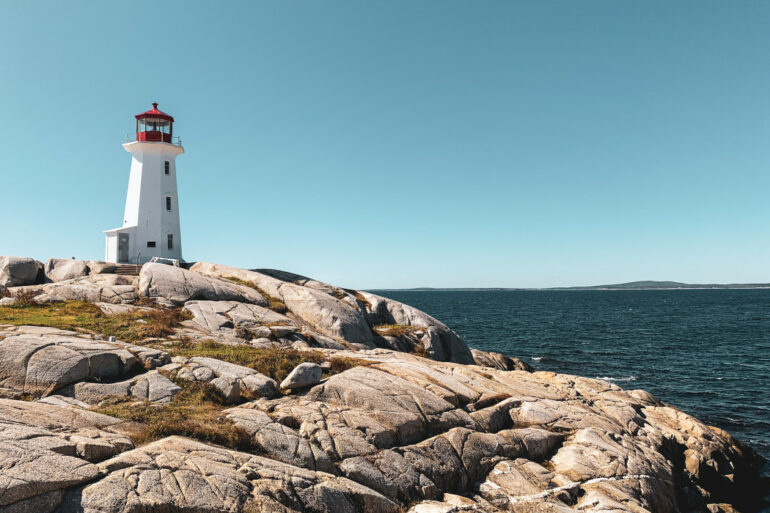Startup Genome has published its first “blue economy” report, naming four Canadian ecosystems to its list of the best 35 cities and regions for ocean technology startups in the world.
The report ranks Atlantic Canada as the 10th best blue ecosystem in the world. This makes Atlantic Canada, which encompasses four provinces—New Brunswick, Newfoundland and Labrador, Nova Scotia, and Prince Edward Island—the country’s strongest blue economy startup ecosystem.
Startup Genome ranks Atlantic Canada’s the country’s strongest blue economy and ocean tech startup ecosystem.
Startup Genome ranked Vancouver close behind at 14, while Calgary and Toronto-Waterloo also managed to crack the top 35 list at 27 and 35, respectively.
The report defines the blue economy as the “sustainable use of ocean resources for economic growth, improved livelihoods, and jobs while preserving the health of the ocean ecosystem.”
Thanks to the country’s lengthy coastline and the work of innovation players like the Government of Canada’s Ocean Supercluster, “Canada is now a country whose ocean incubators, accelerators, and innovation hubs are bursting at the seams,” stated the report.
“Canada has a long history of ocean-related activities, and several well-established startup hubs have a deep connection to the marine industry,” said the report, citing Vancouver, Halifax, and Calgary as “just three examples.”
Other Canadian blue economy hotbeds noted by Startup Genome include St. John’s, Rimouski, and Victoria, which is apparently generating more applications for the Ocean Supercluster’s Ocean Startup Project than any other region.
Ranked first of the four Canadian ecosystems named to the list, Atlantic Canada performed particularly well in terms of funding and focus and received good marks on the startup experience front. However, the region ranked around the middle of the pack on performance, knowledge, and legacy, and tied for the second lowest of the top 35 talent pool-wise.
Since 2018, Atlantic Canada has played home to the Ocean Supercluster—one of Canada’s five federally-funded “global innovation clusters.” The ecosystem, which from a blue economy standpoint benefits from its proximity to the Atlantic Ocean, also houses a roster of promising ocean tech startups, including Xpertsea, Mara Renewables, and Planetary Technologies.
RELATED: Xpertsea secures $25 million CAD to expand sustainable aquaculture solution to new markets
Founded in 2016, Startup Genome is a San Francisco-based policy advisory and research organization focused on measuring startup ecosystem performance. The organization’s Blue Economy report ranks ecosystems over the past five years on the basis of seven factors: performance, funding, startup experience, knowledge, talent, focus, and legacy.
The Blue Economy report draws on a Startup Genome survey with more than 10,000 participants annually, interviews with over 100 experts, and data from Crunchbase, Dealroom, PitchBook, CB Insights, and local partners, collected between 2017 and 2022.
As Startup Genome founder and CEO JF Gauthier put it, “the Blue Economy is growing rapidly and represents one of the highest potential sub-sectors, both from a financial opportunity and its potential to help save our planet.”
Startup Genome noted that Canada’s growing blue economy startup ecosystem houses companies with ideas that will service a wide range of sectors, from fisheries to aquaculture, offshore energy, marine renewables, transportation, defense, and ocean technology.
RELATED: Mara Renewables raises $39.5 million to expand algae-based offerings
At 14 overall, Vancouver was buoyed by strong rankings in funding and performance. The British Columbia ecosystem also performed well in terms of knowledge, talent, and focus, but was much weaker than its competitors on the legacy front.
Meanwhile, landlocked Calgary made the list at 27 thanks to its particularly high legacy and strong performance and focus rankings. For its part, Toronto-Waterloo, which Startup Genome considers a single ecosystem, snuck into the top 35 at the last available spot, helped by its strong focus but held back by its rather weak startup experience and knowledge ranking relative to other regions.
According to Startup Genome, the top five Blue Economy ecosystems in the world are Singapore, Silicon Valley, Oslo, Amsterdam-Delta, and London.
But as Gauthier pointed out, the organization’s latest report shows “strong pockets of innovation exist in ecosystems of all sizes all over the world,” including along Canada’s east and west coasts.
Feature image courtesy Unsplash. Photo by Tobias Negele.


